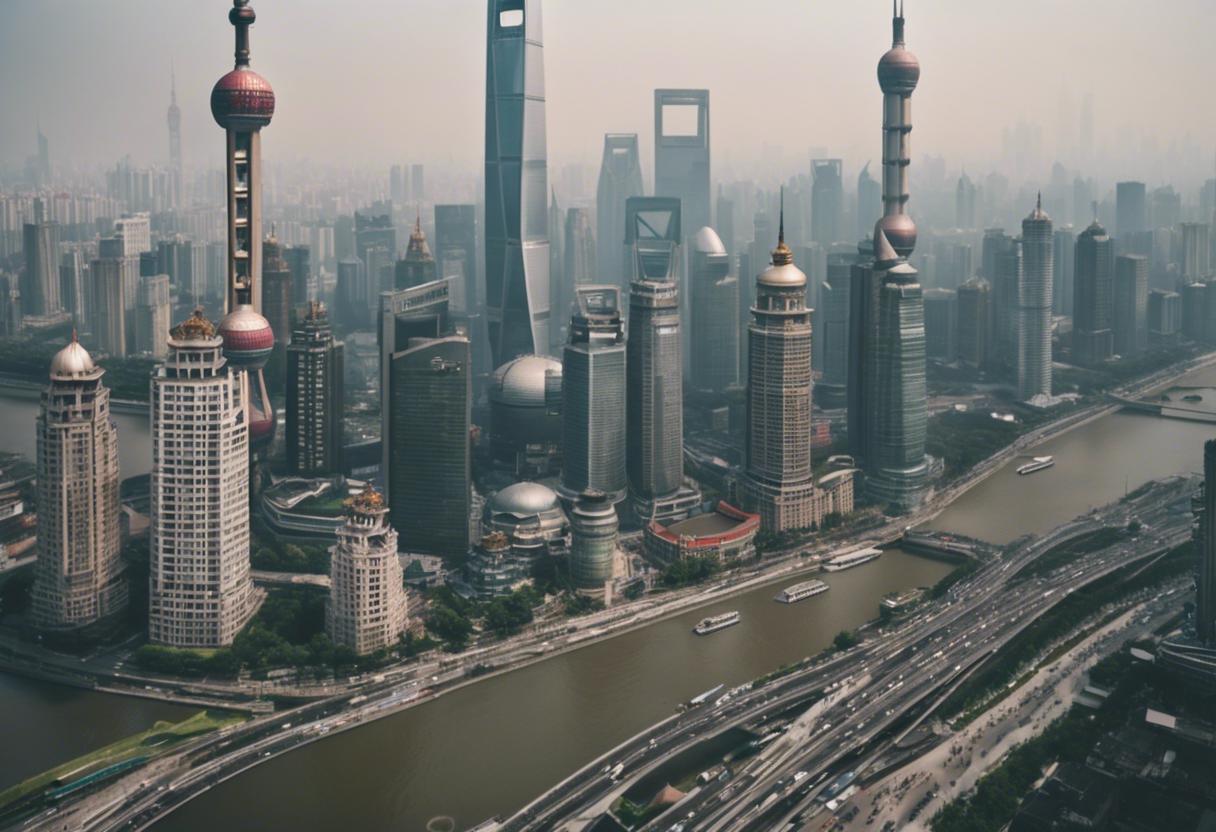In light of a declining economy, China has implemented a series of economic stimulants, comprising reductions to its principal interest rate. This news was made known during an uncommon public update on Tuesday as the People’s Bank of China disclosed plans to heighten government funding aimed at enhancing the stock market, helping share buybacks and providing more backing for the hard-hit real estate sector.
Due to apprehension from economists regarding China’s ability to achieve the government’s growth forecast of 5 per cent for the year, the Chinese Central Bank governor, Pan Gongsheng, assured that these courses of action are intended to ensure consistent growth in China’s economy and stimulate a moderate increase in prices.
These multiple tactics led to a rise of 4.3 per cent in the China’s CSI 300, incorporating shares from Shanghai and Shenzhen on Tuesday, making it the best day since July 2020. Led by mainland Chinese companies, the Hang Seng Index in Hong Kong increased by 4 per cent, while the Stoxx Europe 600 in Europe advanced by 0.4 per cent and the FTSE 100 up by 0.5 per cent in the early trading hours.
The Chinese central bank announced a decrease in its primary policy’s rate, the short-term seven-day reverse repo rate, from 1.7 per cent to 1.5 per cent, along with a 0.5 percentage point drop in the reserve requirement ratio, which is the reserve amount lenders are required to hold. Pan hinted at a possible further reduction of 0.25 to 0.5 percentage point within the year which would increase banking system liquidity by Rmb1tn.
Analysts from Goldman Sachs noted in a correspondence to their clients that the policymakers’ decision to concurrently reduce policy rates and the RRR, the significant scale of these cuts, and the uncommon direction towards more policy relaxation demonstrates an escalation in policymakers’ worries over growth obstacles.
Goldman suggests that in order to give a boost to the tangible economy, China may need to implement a fresh round of policy relaxation. Moreover, to enhance the country’s growth prognosis, additional demand-side measures, particularly financial relief, may be necessary.
The economic growth of China has experienced a decline in recent months, influenced by a continuous downturn in the property segment, impacting consumer attitudes and reducing expenditure. Economists have lowered their growth predictions for 2024 to below the government’s official aim of approximately 5%, as price deflation continues to remain a problem, visible in the drop in producer prices since the previous year.
In an attempt to combat the housing crisis, policymakers have looked towards exports, however, despite the solid exports of goods such as electric cars and batteries, the impact of a weaker domestic economy has not been fully offset.
Pan, the head of the central bank, commented that the Chinese economy is on a path to recovery and that the monetary policies recently introduced by the bank will support the tangible economy, stimulate expenditure and investments and establish a solid base for the currency exchange rate. Pan was accompanied by Li Yunze, the director of the newly established financial sector regulator, the National Financial Regulatory Administration, and Wu Qing, the chair of the market supervisor, the China Securities Regulatory Commission.
Additionally, an RMB500 billion ($71 billion) fund was announced to aid stock purchases by brokers, insurance firms and funds. An RMB300 billion fund will also be made available to support businesses in buying back shares.
Liu Chang, a macro economist at BNP Paribas Asset Management, stated that the new stimulus efforts are definitely a positive step. However, he noted that due to the weakened economic momentum heading into the last quarter, officials should rapidly execute more measures in the upcoming weeks if they wish to attain the 5% aim.
This follows the US Federal Reserve reducing its benchmark interest rate by 0.5%, the first in over four years, last week. This action has lessened the gap between the US and other major central banks’ rates, alleviating pressure on foreign currencies and enabling institutions, including the PBoC, to have more flexibility.
The bank has reduced the required downpayment for second homes from 25 per cent to 15 per cent, as a part of softer measures. This comes after stricter conditions were imposed on second properties to discourage excessive real estate investment, which had been the focus of President Xi Jinping in the past.
In addition, the People’s Bank of China (PBoC) pledged to offer improved terms for a programme aimed at depleting unsold housing stock. To execute this plan, the central bank has allocated Rmb300bn to state-owned local enterprises to aid them in acquiring the unsold inventory from property developers.
However, the PBoC has refrained from raising the budget for this programme, as there are indications of the bank’s struggle to get the programme established. On the economic front, experts believe that the reduction of China’s extensive backlog of unsold homes is a vital measure for boosting confidence in the economy and sparking a revival in domestic consumption. – Copyright The Financial Times Limited 2024.

